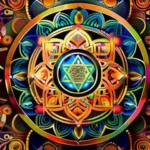Exploring the Interplay Between Belief and Rationality
In this comprehensive article, we delve into the fascinating world of faith and reason. We’ll explore their definitions, origins, roles in human life, and how they intersect and differ.
The Nature of Faith
What Exactly Is Faith? It’s like a seed that we plant within ourselves, one that grows and blossoms into a firm belief or trust in something greater than us. But where does this faith come from? Is it purely a personal choice, or is there more to its origins? In many cultures and religions, faith is seen as a fundamental aspect of spirituality. It’s the backbone that supports the vast edifice of religious beliefs, providing solace and purpose to individuals in their daily lives.
In Christianity, for instance, faith is often depicted as a leap into the unknown, trusting in God despite the uncertainties of life. In Islam, iman, or faith, is one of the five pillars that guide Muslims in their spiritual journey. It’s not just about believing in the existence of Allah; it’s about embodying qualities like sincerity and piety through your actions.
How Does Faith Play Out Across Cultures? Take Buddhism for example, where faith is expressed through meditation and mindfulness rather than belief in a personal deity. Here, faith manifests as a deep trust in the teachings of Buddha and the path to enlightenment. In Hinduism, faith can be seen in the reverence for various deities and the pursuit of moksha, or liberation from the cycle of rebirth.
No matter the culture or religion, faith serves as a beacon that guides individuals through life’s challenges. It provides comfort during times of uncertainty and motivation to strive towards something beyond the mundane. But how does this compare with reason?
The Nature of Reason
The nature of reason often seems as elusive as trying to catch a butterfly in mid-flight, yet it plays a pivotal role in how we navigate life’s complexities. So, what exactly is reason? It’s more than just logical thinking; it involves a deep dive into the patterns and principles that govern our existence. Where does reason come from? Some argue it is a gift of evolution, allowing us to solve problems and make informed decisions. Others see it as a tool forged in the crucible of human experience, refined through education and culture.
Reason acts like a lighthouse guiding our way through the fog of uncertainty, illuminating paths that lead to understanding and truth. It helps us analyze evidence, challenge assumptions, and weigh the pros and cons before making decisions. In essence, reason is the compass we use to explore the vast universe of possibilities around us.
But how does reason work in the face of faith? Consider this: if you believe something with absolute certainty because it resonates deeply within your soul (faith), why do you also need to rely on logical arguments and evidence (reason)? Is there a conflict, or can these two forces coexist harmoniously?
Think about it like walking in the woods. You might follow an ancient path that feels right (faith), but you also use signs and maps to ensure you don’t get lost (reason). Both are essential for navigating your journey effectively. In this metaphor, reason is the map, guiding us while faith ensures we stay on course through intuition and inner conviction.
Ultimately, understanding the nature of reason involves recognizing its power in shaping our worldviews, driving progress, and fostering critical thinking. As we continue to explore how reason interacts with faith, remember that both are vital components of human thought, each providing a unique lens through which to view the world.
Faith vs Reason: A Historical Perspective
Imagine history as a vast river, dashing through time, and at various points, it has seen the interplay between faith and reason collide like two powerful tides meeting on the shore. How did these forces shape our understanding and evolution? Let’s delve into some significant events and figures that have molded this dynamic relationship.
In ancient Greece, philosophers such as Socrates and Plato laid the groundwork for rational thought, questioning everything from ethics to metaphysics. Their emphasis on logic and reason was a stark contrast to the mythological explanations of the gods prevalent in their society. But how did these thinkers reconcile their belief in a higher power with their quest for knowledge through rationality? Wasn’t faith inherently opposed to reason?
Fast forward to the Renaissance, where figures like Galileo and Copernicus challenged not only the prevailing religious doctrines but also the very fabric of how the world was perceived. Their scientific discoveries, based on empirical evidence and reason, clashed with the Church’s dogmatic beliefs about the cosmos. Wasn’t it ironic that these same ideas that were once seen as heretical could later become integral parts of modern thought?
In the Enlightenment, thinkers like Voltaire and Jean-Jacques Rousseau championed reason as a means to achieve societal progress and individual freedom. They argued for rational governance, emphasizing that laws should be based on logical principles rather than religious dogmas. But how did their own reliance on reason sometimes blind them to the complexities of human emotion and spirituality?
The Age of Reason, as it came to be known, brought us closer to a world where science and rationality seemed destined to conquer all. However, with each step forward, new challenges emerged. How could we reconcile scientific advancements with moral and ethical questions that reason alone couldn’t answer? Wasn’t there always a need for faith to guide us through the murky waters of existence?
These historical interactions between faith and reason reveal a complex dance where neither can fully dominate without acknowledging the other’s role. The Renaissance, with its blend of art, science, and philosophy; the Enlightenment‘s quest for universal truths; and even the modern scientific era—all show us that faith and reason are not adversaries but companions on humanity’s journey towards understanding.
The Intersection of Faith and Reason
How often have we found ourselves at the crossroads, questioning where truth lies? Is it in the realms of faith, wrapped in the comforting embrace of belief and tradition, or perhaps in the cold, hard light of reason, driven by empirical evidence and logical analysis?
The intersection of faith and reason is a dynamic dance that has played out across the pages of history. In the realm of science, this interplay is particularly evident. Take for instance the work of Charles Darwin. His theory of evolution challenged religious beliefs about the creation of life, yet it also sparked a deeper understanding of natural processes. How can we reconcile these two seemingly opposing forces? Is one more valid than the other, or do they both serve to enrich our understanding of existence?
In theology, faith and reason often walk hand in hand. Theologians like Thomas Aquinas sought to merge Christian doctrine with Aristotelian philosophy, using reason to elucidate the mysteries of faith. This approach allowed for a more comprehensive view of spirituality, one that isn’t confined by mere dogma but is informed by rational thought as well.
It’s fascinating to consider how these two forces can complement each other. Faith provides us with a moral compass and a sense of purpose, while reason helps us navigate the complexities of the world around us. Can we truly appreciate the beauty of the universe without both faith and reason? Do they need each other to thrive?
From the scientific inquiry that seeks answers through observation and experimentation to the theological debates that probe the depths of spiritual understanding, these two concepts are not in conflict but rather interdependent. They both offer unique perspectives on our place in the world and shape our collective human experience.
So, as we continue to explore the realms of faith and reason, let us embrace their intersection. For it is only through this mutual respect and understanding that we can truly find a path forward, one that honors both the heart and the mind.
Faith and Reason in Modern Society
How do we navigate the complex landscape where faith and rationality meet in modern society? In a world filled with diverse beliefs, these two forces often seem like opposing poles—like oil and water, or perhaps more poignantly, as light and darkness. Yet, both are essential components of human experience.
In politics, for instance, faith and reason sometimes stand at odds. On one side, we see movements driven by deeply held religious convictions, advocating for policies that may not always align with scientific evidence or practical governance. Conversely, there are those who prioritize rationality over spiritual beliefs, often seen as cold and unfeeling in their approach to society.
Education provides another fertile ground where these forces collide. On one hand, schools aim to foster critical thinking and logical reasoning skills—essential for a functioning democracy. Yet, they also grapple with how much space should be allocated for religious studies or moral education that might rely on faith-based teachings. How do we ensure that every student’s beliefs are respected while still promoting evidence-based learning?
For many individuals, the tension between these two forces can feel overwhelming. Do we prioritize our spiritual convictions over scientific facts? Or should we always seek out rational explanations for phenomena? The truth lies somewhere in the middle—a nuanced balance where faith and reason coexist, sometimes complementing each other.
The interplay between faith and reason is not just a theoretical debate but has real-world implications. As we move forward, it’s crucial to engage with both—embracing their strengths while acknowledging their limitations. Only then can we truly understand the complexity of human belief systems in today’s interconnected world.
Balancing Faith and Reason
When balancing faith and reason, it’s like navigating through two vast oceans: one driven by emotions and beliefs, the other guided by logic and evidence. How do you ensure that both don’t collide or leave you stranded in a sea of uncertainty? The key lies in understanding their unique roles and finding a harmonious balance.
Firstly, critical thinking is your compass. It helps navigate the often murky waters where emotions can cloud judgment. Ask yourself: What are the underlying assumptions behind my beliefs? Are they based on solid evidence or personal feelings? By questioning these aspects, you can ensure that both faith and reason contribute constructively to your worldview.
Open-mindedness is another crucial tool. It’s like bringing a sail to your lifeboat; it allows the winds of new ideas to guide you without fear. Being open to different perspectives can enrich your spiritual journey, making your beliefs more resilient and adaptable. Yet, this doesn’t mean abandoning all critical scrutiny; it’s about integrating wisdom from various sources.
Moreover, engaging in dialogue with people of differing views can be enlightening. It’s like planting a garden where different plants grow side by side—each one enriching the soil and contributing to the whole. Through respectful conversations, you can refine both your faith and reason, fostering mutual respect and understanding.
In summary, balancing faith and reason is not about choosing between them but integrating their strengths into a cohesive worldview. By embracing critical thinking, maintaining an open mind, and engaging in dialogue, you can navigate life’s complex questions with greater clarity and purpose.
So, how do you strive to balance these two essential aspects of human experience? Share your thoughts and challenges below, and perhaps together we can find ways to enrich each other’s journeys. After all, the journey through life is far more meaningful when walked hand in hand with both faith and reason.
Conclusion
 By the end of this article, you’ll have a deeper understanding of the complex relationship between faith and reason, and how they shape our beliefs and decision-making processes.
By the end of this article, you’ll have a deeper understanding of the complex relationship between faith and reason, and how they shape our beliefs and decision-making processes.











